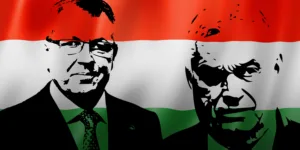On February 24th, 2022, the world woke up to a new reality: Russia initiated large-scale military aggression against neighboring Ukraine.
While the war is happening on the European continent, considering it a purely European affair is flawed since the conflict has global ramifications. The very fact that a permanent member of the UN Security Council, which is also a nuclear power, initiated a war of aggression ranks at the top of the list of events with an eroding effect on the rule-based world order and international law. Consequent disruption of food supply chains and rising inflation threaten further destabilization, disproportionately affecting the countries of the Global South.
Hence, to fully understand the war’s impacts and how it is perceived, we must turn our attention beyond the physical borders of Europe. The Indo-Pacific region presents a particularly interesting puzzle. The views and reactions of the Indo-Pacific governments – ranging from democratic to semi-democratic to authoritarian regimes – vary significantly. The region encompasses countries that are largely supportive of Ukraine, those that provide Russia with diplomatic or other means to fight the war, and many others which fall somewhere in between on this spectrum.
This paper provides a close look at how Russia’s aggression was reflected in the statements, policies, and actions of ten countries of the Indo-Pacific, namely China, India, Indonesia, Japan, Malaysia, North Korea, Singapore, South Korea, Taiwan, and Vietnam. Special attention is also given to how the war was seen by the Association of Southeast Asian Nations (ASEAN). Moreover, the reactions of civil society, academia, and media in the studies countries are also addressed. Last but not least, observations are offered on how the war has affected the strategic landscape and security situation in the Indo-Pacific region, and how the European Union, as well as individual member states, should respond to that.













